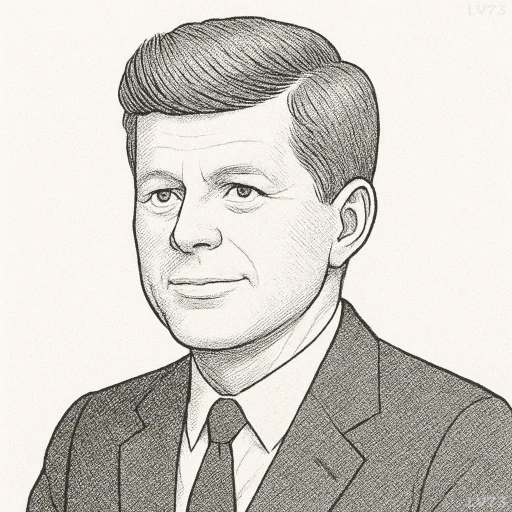“A young man who does not have what it takes to perform military service is not likely to have what it takes to make a living. Today’s military rejects include tomorrow’s hard-core unemployed.”

- May 29, 1917 – November 22, 1963
- American
- Politician
table of contents
Quote
“A young man who does not have what it takes to perform military service is not likely to have what it takes to make a living. Today’s military rejects include tomorrow’s hard-core unemployed.”
Explanation
In this controversial statement, John F. Kennedy links the qualities required for military service with those he believes are necessary for success in the civilian workforce. Kennedy suggests that the discipline, physical fitness, and mental toughness needed to serve in the military are qualities that also contribute to a person’s ability to thrive in society and earn a living. He implies that those who fail to meet the standards of military service are likely to struggle in other areas of life, including finding stable employment. The phrase “hard-core unemployed” is a stark warning about the consequences of not developing the necessary personal characteristics—such as self-discipline, work ethic, and resilience—that are valued both in the military and the broader economy. Kennedy is framing the military as a kind of training ground for life skills, suggesting that the challenges of military service are an important part of building character and preparing young people for the responsibilities of adulthood.
Kennedy’s statement must be understood in the historical context of the 1960s, when the Vietnam War was escalating, and there was a strong emphasis on patriotism and national service. During this time, military service was seen as a key part of a young man’s transition to adulthood and a means of proving one’s commitment to the country. For many, serving in the military was also viewed as a way to instill discipline and offer structure in an uncertain world. Kennedy’s comment, therefore, reflects a belief in the value of military service as a formative experience, and perhaps, an attempt to persuade young men to consider enlistment as a means of personal development and a way to secure their future stability.
However, in modern terms, this view is much more controversial. Critics argue that equating military service with personal success and employment prospects overlooks the complexities of modern life, where unemployment and economic instability are often shaped by factors far beyond an individual’s character or ability to endure the rigors of military life. Today, the nature of employment has shifted, with many jobs requiring higher education, specialized skills, and technological expertise that are unrelated to military service. Moreover, there are growing conversations about the importance of mental health, individual agency, and alternative paths to success, which Kennedy’s statement does not fully address. While the military can offer structure and opportunities for some, there are many young people who might not be suited to military life yet still go on to build successful careers in fields like technology, entrepreneurship, and the arts. Thus, while Kennedy’s words reflect an earlier perspective on personal development and discipline, they may not fully account for the diversity of paths to success in today’s world.
Would you like to share your impressions or related stories about this quote in the comments section?



